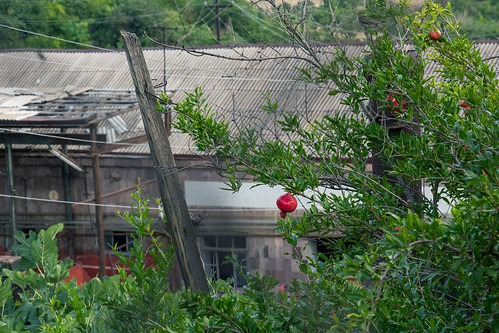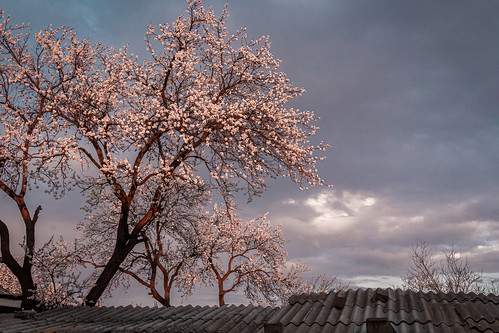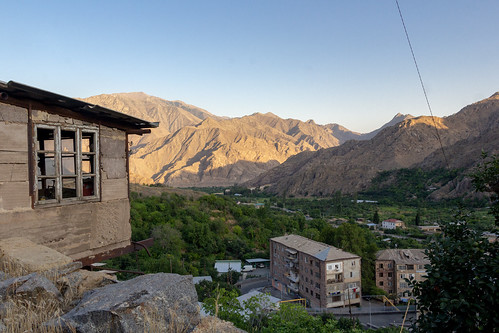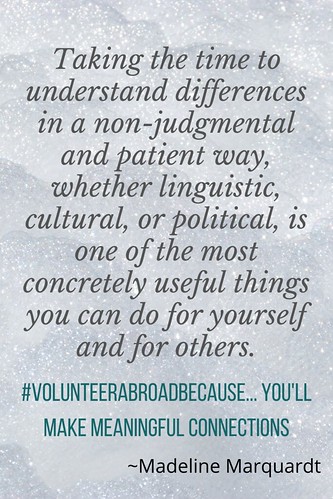#VolunteerAbroadBecause ... You'll Make Meaningful Connections
Madeline Marquardt is a writer, photographer, and paddler currently based in Grand Marais, Minnesota. She has worked as a sea kayaking guide in the Apostle Islands, English teacher in Armenia, and paddled and hiked extensively throughout the Lake Superior Region and state of Michigan. You can find her at madelinemarquardt.com, where she writes about the outdoors and adventure travel.
Here on Wandering Educators, you can read our review and author interview about her book, Hidden Gems of the Northern Great Lakes: A Trail and Paddling Guide, and her Top Five Hidden Gems in Michigan for Hikers and Paddlers.

Noravank Monastery
What motivated your decision to volunteer abroad? How/why did you choose where to go?
In college, I worked as a Writing Consultant primarily for English Language Learning Students. A lot of these students were college freshmen who came from another country to study in America. These students all had really incredible stories to share about the cultural challenges and adjustments they made, and I was very much inspired by them.
All of these students had something incredibly positive to take away from living in a country foreign to them, and that was an experience I really wanted to try myself.
I served as a Peace Corps Volunteer in Armenia, and I didn’t decide to go there. When I applied for the US Peace Corps, I checked the “send me anywhere” box. When I was told I was being considered for Armenia, I actually had to Google the country, because I wasn’t completely sure where it was.

Armenian script on the Noravank Monastery
How did you find your job? What resources did you use?
I applied for the US Peace Corps when a friend suggested that the program might be a good fit for me. I wanted to live abroad in a place I didn’t yet know the language, and I wanted to continue teaching English Language Learners. Language immersion and a homestay program were really important to me. I’ve always really struggled with foreign languages, and homestay makes learning a language a lot quicker by necessity.

A pomegranate, a national symbol of Armenia along with the apricot, hanging from a tree in the village of Megri near the border with Iran
What was your experience like? Can you share some favorite memories–and challenges?
My experience was a mixed bag. I think anyone volunteering or living abroad should expect to have incredible moments where it feels like you’re in the best place in the world, as well as terrible, confusing low points, especially if you’ll be living abroad longer than three months.
I was in Armenia for one year to the day (March 17th 2019-March 17th 2020), and I was committed to staying there for two years and three months. My time in Armenia was cut short by the global spread of COVID-19, and I left the country on about 24 hours notice. It was awful. There’s not really a way to articulate how all that feels. During my time in Armenia and for a short period after, I maintained a blog totalling near 30,000 words. I have a lot more to say about it than that, especially in hindsight from the post-COVID reality we live in today.
In short, my first three months in Armenia were incredible. Spring in Armenia is apricot blooms and so many bees that the branches bend like they might break. The villages smell like woodsmoke and rain, and you can still see white snow on the mountains in the distance.

An apricot tree blooms in a small village, Armenia
My first summer in Armenia was incredibly hot, and difficult. I struggled with the language, and the heat, and feeling foreign. I started noticing how different I looked from everyone else, and how ugly it sounded when I spoke the language. School started in the fall, and I had really underestimated how difficult it is to be in a classroom where you aren’t a fluent or native speaker of the classroom language. I worked with two Armenian English teachers, who were incredibly helpful in making me feel welcome in the school, and helping me understand what a useful role for me was in the classroom.
In the fall, it cooled down outside, and I was able to host English clubs after school. I’m still in contact with a lot of these students today. It wasn’t until winter in Armenia that I really saw useful improvements in my language and was able to speak Armenian in a way that let me effectively communicate in most situations.
Living abroad in a country, especially when learning a language, is such an incredible experience, but also very isolating. There were weeks when everything seemed shiny and special, and there were weeks when all that I wanted in the whole world was to be home in America.

The town of Meghri from above, with the desert mountains of Iran in the distance
What skills did you develop from your experience? Do you feel changed from your experience abroad?
My time in Armenia absolutely made me a more culturally competent person. I think my biggest takeaway is that advocating for people who experience feeling different every day is really important. And taking the time to understand differences in a non-judgmental and patient way, whether linguistic, cultural, or political, is one of the most concretely useful things you can do for yourself and for others.
My time in Armenia impacted me in a lot of ways. I love that country and its people with my whole heart, and will be returning as soon as I get a chance.
There’s so much that happened in Armenia that changed the way I see things. Still, for as much as Armenia impacted my worldview, evacuation due to COVID-19 and the uncertainty that followed probably changed me more as a person than my experience abroad in itself.
I came home to a version of the US I didn’t recognize. The week before I had been playing tag outside in the shadow of Mount Ararat. I came home with no job, no plan, and didn’t get a chance to say goodbye to many of the people I became close friends with in Armenia. That experience, and the uncertain Spring that followed, was harder for me than all of my time in Armenia.

An old Soviet watch tower over the town of Meghri
Has your experience helped you get to where you are today?
It’s only been just over a year for me since I left Armenia. Honestly, it feels like I’m still recovering from the whole experience of evacuation, losing my job, plans for the next year, and the place I called home overnight. The phrase “get where I am today” makes it seem like I’ve gotten somewhere.
Today, over a year later, I work part time in a school, and do freelance writing and photography, as well as some wilderness guiding in the summer. It’s sort of a hodgepodge of the things I like until I’m ready to commit full-time to something.

Noravank Monastery
My experience abroad did, however, help me decide who I want to be. I just don’t really feel like I’ve arrived at that person yet.
Any advice for students thinking about volunteering overseas? What are some highlights or things that you gained or changed your perspective?
I would highly advise any student thinking of volunteering overseas to really inspect the program they’re going with. I have a lot of great things to say about the US Peace Corps. I also have some major critiques, to the point where I would not recommend the US Peace Corps to anyone who is not 100% sure that this is the experience they want.
In order to be an effective and useful volunteer, you have to want to have a positive experience, and you have to be flexible about what that experience looks like. You also need to be aware that you will probably be put in uncomfortable situations where there is no easy fix, and you might not receive the support you deserve or expect from Peace Corps headquarters.
I would also really suggest anyone volunteering in a country understand that country's relationship to the US, and dive into why your organization sends volunteers to that place, and how those volunteers are viewed by the community.
How has international education impacted or influenced your cultural identity?
It’s funny, I think we don’t realize how American we are until we’re in a country that is very much not America. Before living abroad, I didn’t consider my Americanness a huge part of my cultural identity. One thing unique to the Peace Corps experience is you have an excellent community of other volunteers, and with these other volunteers the thing that really binds you together is your Americanness.

A memorial in a small town to the 1915 Armenian Genocide
#volunteerabroadbecause ... making meaningful connections with people different from you is one of the best things you can do for others, but also for yourself.
Find Maddy's socials at:
Instagram: @maddymarq
Twitter: @maddymarquardt
Pin for later:

All photos courtesy and copyright Madeline Marquardt
-

- Log in to post comments


















